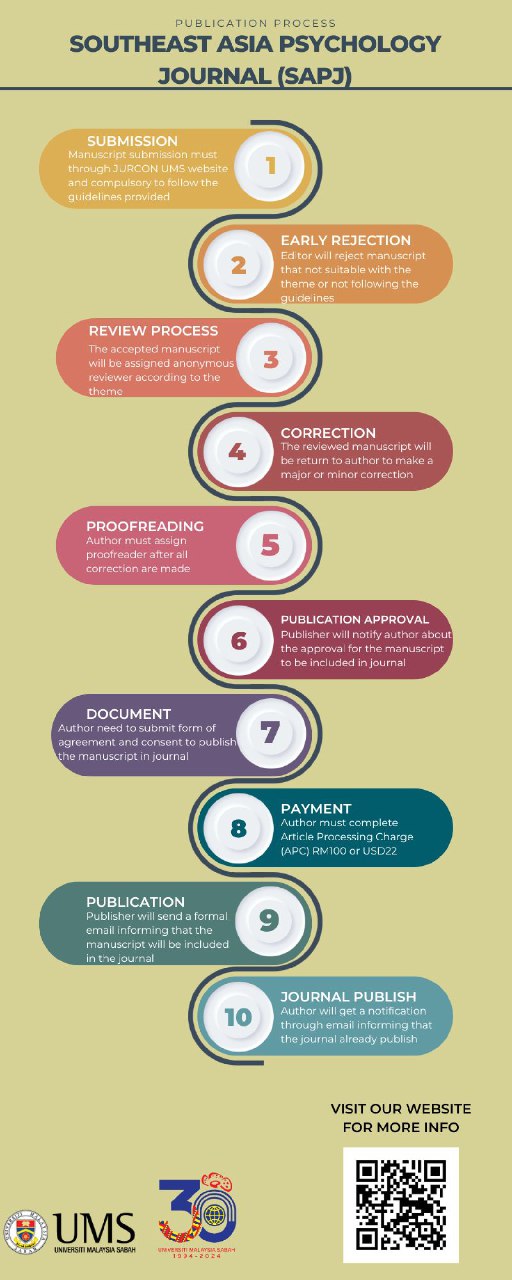Coping strategies, perceptions of the effectiveness of rehabilitation programs and intention to relapse among former methamphetamine addicts.
DOI:
https://doi.org/10.51200/sapj.v2i1.5670Keywords:
Coping, Rehabilitation, RelapseAbstract
This study aims to explore issues on coping strategies, perceptions of the effectiveness of rehabilitation programs and the process of their intention to relapse among former Methamphetamine addicts. A total of 59 respondents were selected using purposive sampling which made up of former addicts who are undergoing surveillance program in Sandakan and Kota Kinabalu, Sabah. The results found that, several strategies employed by former addicts in their coping style have shown possibility of relapse. The study also found that respondents were quite positive with the activities organised by Malaysia National Anti-Drug Agency (AADK). This indirectly has become a form of treatment and therapy among the former addicts. The conclusion could be explained based on Transtheoretical Model of Change by Prochaska et. al (1992).
References
Azizi Yahya. (2004). Pembangunan Kendiri. Johor: Universiti Teknologi Malaysia.
Bernard, H. R. (2000). Social research methods: Qualitative and quantitative approaches. Thousand Oaks, California: Sage Publications, Inc.
Brecht, M. L., Greenwel, L., & Anglin, M.D., (2007). Substance use pathways to methamphetamine use among treated users, Addictive Behaviors, 32, 24–38.
Brooks, J.S., Whiteman & Gordon (2002). Longitudinally foretelling drug use in the late twenties. Adolescents Personality and Social Environement Antecedents :Journal of Genetic Psychology,161 (1), 36-42.
Carver, C. S., Scheier, M. F. & Weintraub, J. K. (1989). Assessing coping strategies : a theoretical based approach. Journal of Personality and Social Psychology, 36, 267283.








